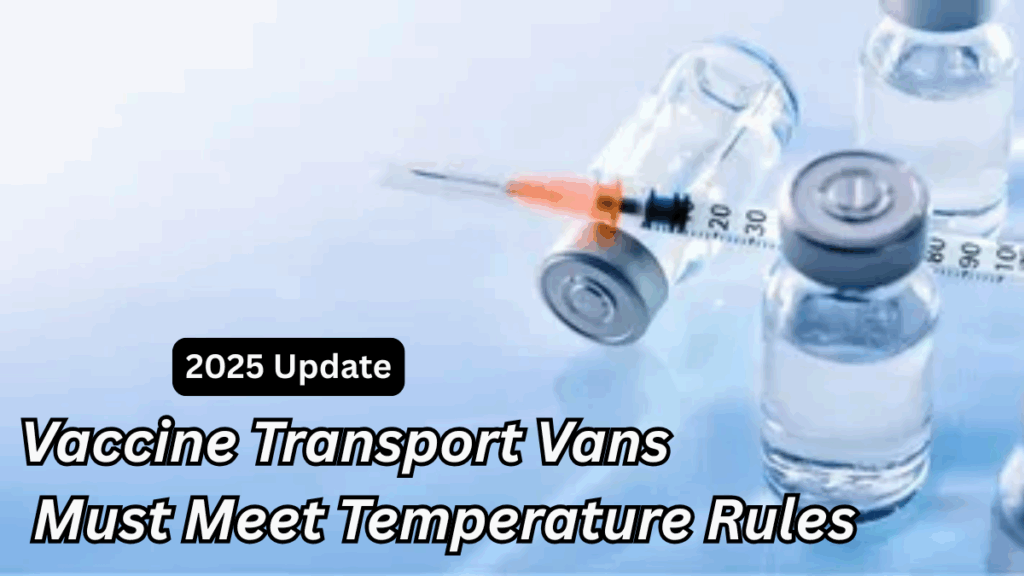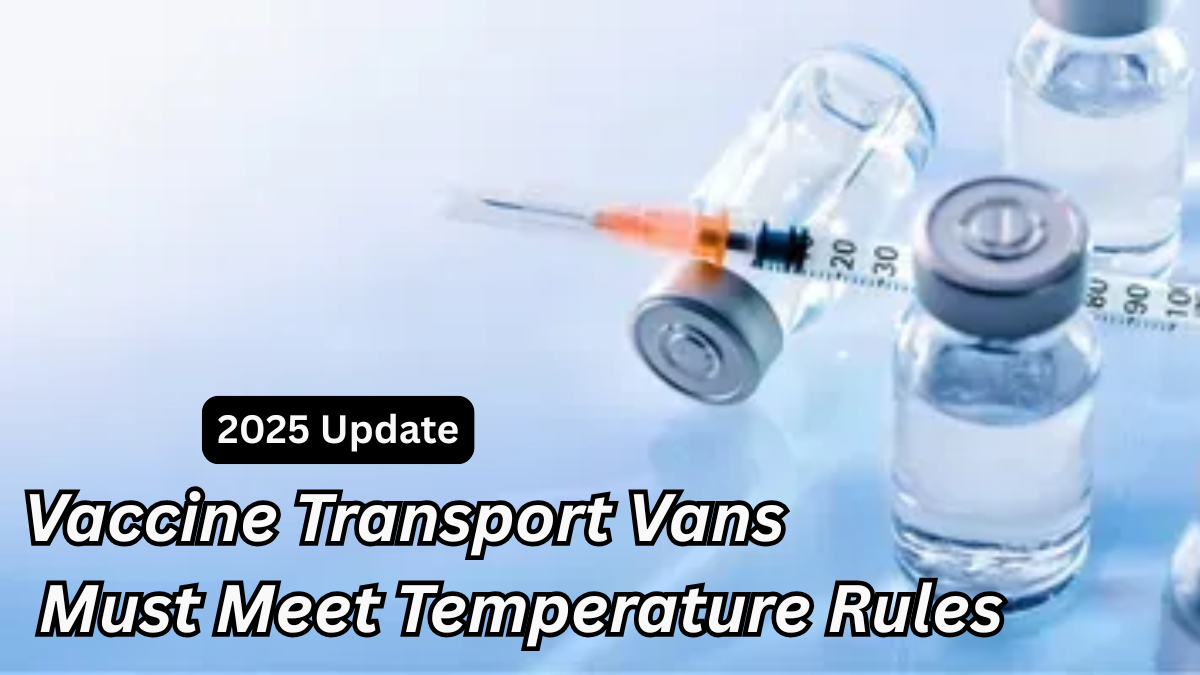Ensuring vaccines reach their destinations safely is more important than ever in 2025. Recent guidelines emphasize strict compliance with vaccine truck temperature standards to preserve efficacy and prevent wastage. Transporting vaccines is not just logistics; it’s a critical step in safeguarding public health.

Why Temperature Compliance Matters for Vaccine Transport
Vaccines are highly sensitive biological products. Even minor temperature deviations can reduce their potency, rendering them ineffective. Authorities have therefore set strict rules to ensure cold chain medicine van operations meet the required temperature standards throughout transit.
Key points include:
-
Temperature-sensitive vaccines must remain within prescribed ranges from storage to delivery
-
Cold chain medicine van operators must be trained to monitor and document temperatures
-
Non-compliance can lead to vaccine spoilage and public health risks
Temperature Standards for Vaccine Trucks in 2025
Maintaining the correct temperature is non-negotiable. Different vaccines require distinct temperature ranges:
| Vaccine Type | Required Temperature Range (°C) | Notes |
|---|---|---|
| mRNA Vaccines | -20 to -70 | Ultra-cold storage required |
| Viral Vector Vaccines | 2 to 8 | Standard refrigeration |
| Inactivated Vaccines | 2 to 8 | Monitor for prolonged transit |
| Protein Subunit Vaccines | 2 to 8 | Maintain consistent cold chain |
A well-maintained cold chain medicine van ensures these temperatures remain stable, preventing vaccine wastage during transport.
How Vaccine Transport Vans Are Monitored
To ensure compliance with vaccine truck temperature requirements:
-
Vans are equipped with digital temperature loggers that continuously record readings
-
Alerts are triggered if temperatures exceed the allowed range
-
Periodic audits are conducted to ensure drivers follow standard operating procedures
Checklist for Operators:
-
Confirm refrigeration units are functional before loading vaccines
-
Regularly calibrate temperature sensors in vans
-
Keep temperature logs for inspection by authorities
-
Avoid frequent door openings during transit to minimize temperature fluctuation
Innovations in Vaccine Transport Vans
Modern cold chain medicine vans now come with:
-
Advanced insulation systems for long-distance travel
-
GPS tracking integrated with temperature monitoring
-
Real-time remote alerts to prevent breaches in the cold chain
These upgrades have significantly reduced vaccine spoilage and improved delivery efficiency.
FAQs
Q1: What is a cold chain medicine van?
A cold chain medicine van is a specialized vehicle designed to transport temperature-sensitive medicines and vaccines while maintaining a strict temperature range to ensure their potency.
Q2: Why is monitoring vaccine truck temperature crucial?
Maintaining the correct vaccine truck temperature ensures that vaccines remain effective and safe for use. Even slight deviations can compromise their quality.
Q3: How often should vaccine vans be inspected?
Regular inspections are required before loading, during transit, and upon delivery. Authorities may also conduct random audits to ensure compliance with temperature rules.
Q4: What happens if a van fails temperature compliance?
Vaccines in non-compliant vans may be deemed unusable and must be safely discarded. Operators may face penalties, emphasizing the importance of following cold chain protocols.
Click here to learn more
